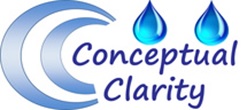Helping Explore Accountable Lifestyles
You must take personal responsibility. You cannot change the circumstances, the seasons, or the wind, but you can change yourself. That is something you have charge of.
-Jim Rohn
Helping Explore Accountable Lifestyles
You must take personal responsibility. You cannot change the circumstances, the seasons, or the wind, but you can change yourself. That is something you have charge of.

HEAL’s mission is to hold those who perpetrate domestic abuse and or violence accountable for their actions.
We do this by providing an educational environment where men are helped to identify and acknowledge their use
of violence or coercive control, and are offered an opportunity to explore personal accountability and options
so that they can implement changes in their life. Intervention is designed to hold men accountable for their
actions and beliefs.

Conceptual clarity is the process of ensuring that every part of a program is congruent with the underlying theory and goals. HEAL’s philosophy is firmly grounded in research and practice findings that domestic violence is a crime overwhelmingly committed by men against women. Abusive behaviour is a choice made by men that encompasses a range of coercively controlling actions that include purposeful, instrumental, and strategic behaviors used to control and dominate others for personal benefit. The HEAL Program is designed to intervene in the lives of men who abuse, in order to encourage accountability for the safety and respect of everyone. This is done with the presumption of competence and the belief that individuals have the ability to make accountable, sustainable change.
HEAL is a 52 session intervention program for men who have been abusive. Participants attend one, two-hour group per week. The group is an open group (meaning men may enter at different times and will be at different phases of the program).
The program is based on the concept that abuse as a choice and that participants need to integrate accountability into their lives. This is a self paced program that expects weekly homework from the workbook. The homework provides participants with an opportunity to increase awareness, identify issues, tactics, core beliefs and practice accountable options in their daily lives.
Each week one of the service participants will act as group leader. The leader is responsible for opening and closing the session and following the agenda. Service participant’s introduction is reflective of their personal understanding and internalization of the program concepts.
The program is designed so that participants will move through the phases in an integrated group. The program has four phases:
Each phase requires the completion of specific assignments, a presentation to the group and a group vote to move on.
Participants learn best from each other. Mentoring is beneficial to both the mentor and the person being mentored. All participants are expected to act as a mentor to men who are new to the program.
Requirements:
Group leader will ask each week which participants need a mentor and who is eligible to mentor. It is your responsibility to volunteer as a mentor when you are eligible.
I commit all my efforts to seek accountability in my thinking and actions and to provide safety and respect to everyone in my life.
HEAL is committed to the safety of victims and to holding men who have been abusive to their partners accountable for their behavior. Releases to partners/victims are optional. Any documentation of communication with a partner is kept separate from the service participant’s file. Victims/partners will be given referrals to shelters or other appropriate survivor services organizations if necessary.
Charron Services is committed to not having a waiting list for accessing any programs.
HEAL can accept referrals two ways.
Occasionally an individual may have a need for an accommodation. This must be arranged by calling +1 (248) 730 0690. Special accommodations may require an additional charge.